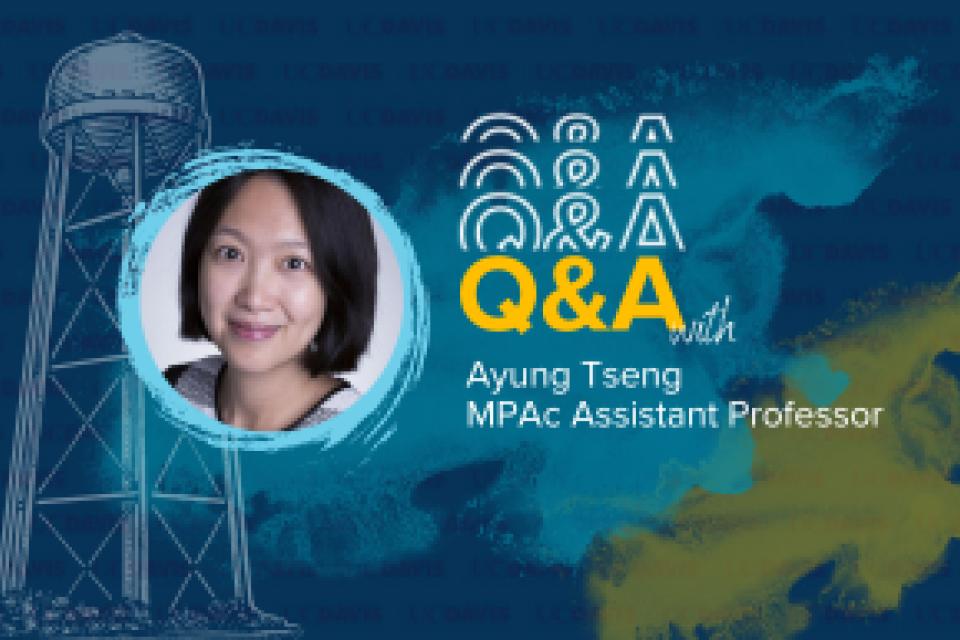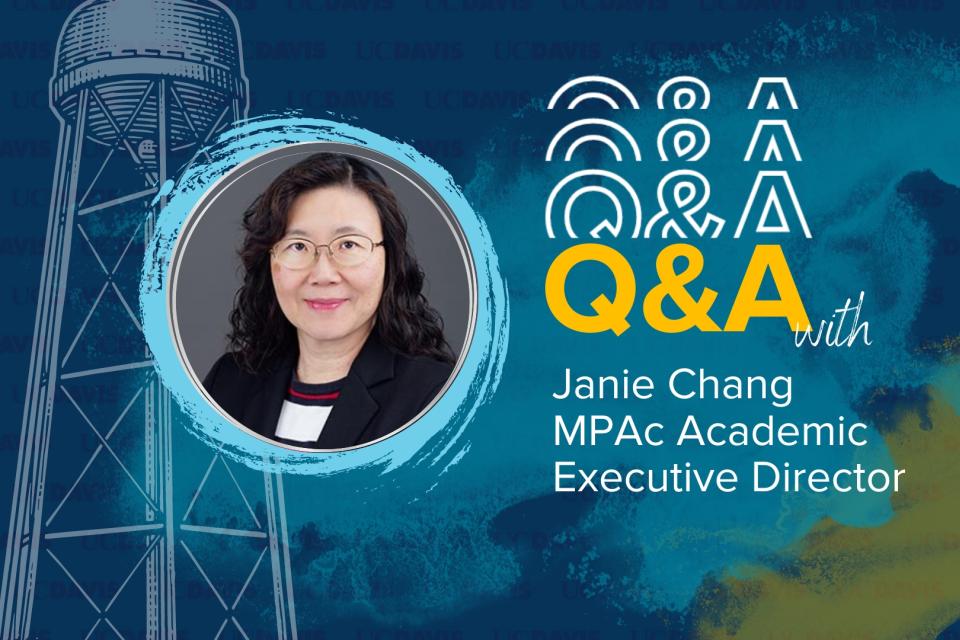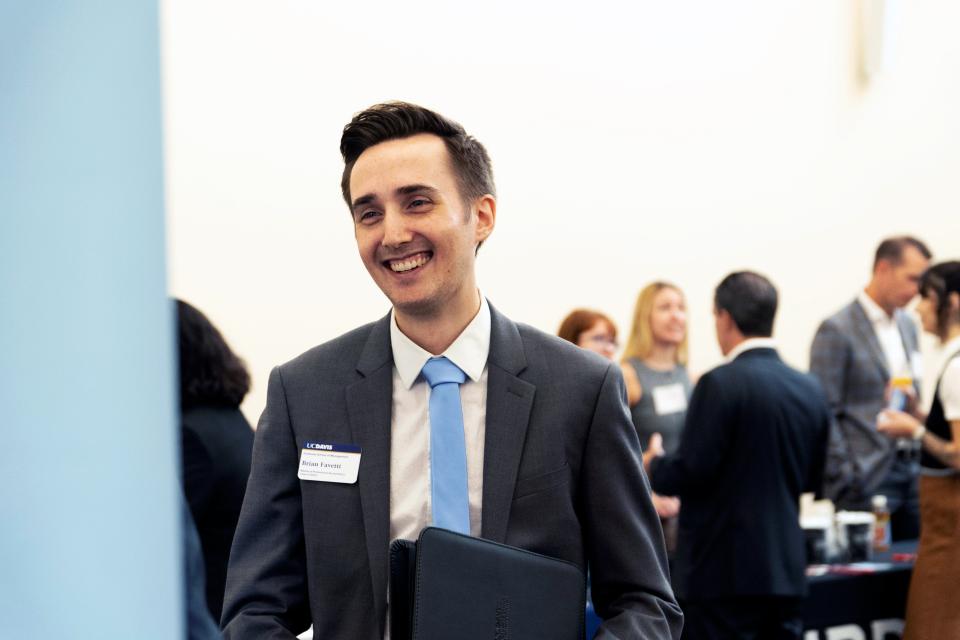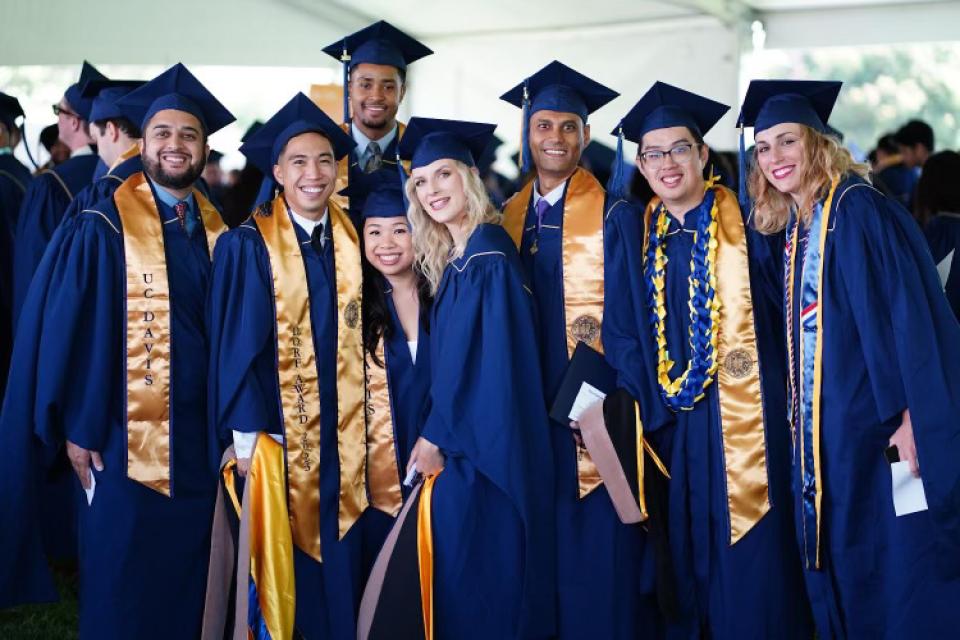Introducing Ayung Tseng: Enriching UC Davis with a Passion for Research
Bringing her expertise and vision to MPAc

We are excited to welcome Ayung Tseng to our faculty as assistant professor in the UC Davis Master of Professional Accountancy (MPAc) program. We asked Ayung about her background, her research and her co-founding the Accounting Design Project to seek the understanding of what is “good accounting” and “bad accounting.”
What attracted you to UC Davis and the MPAc program?
UC Davis is a highly ranked university with cutting-edge research and small-sized classes. The intimate teaching environment allows me to share detailed insights gained from research through interactive instructions to benefit students excel in their careers.
The Graduate School of Management (GSM) has a unique location with proximity to major urban areas where job opportunities are abundant, and UC Davis preserves a close-knit community culture where you can develop life-long relationships with your classmates and faculty members.
The Master of Professional Accountancy program specifically caters to students interested in pursuing accounting knowledge and entering a professional accountancy career.
With the rapidly changing business landscapes, the MPAc program focuses on equipping students with the latest data analytical skills to embrace technologies and remain competitive in the years after graduation.
Can you share an overview of your background, experience, and research in the accounting field, including specific areas of expertise?
I majored in accounting during my undergraduate study and passed the CPA exam in Taiwan. After working as a business consultant at the PwC Taipei office, I went to Yale School of Management for my MBA study and passed three levels of the CFA exam in the U.S.
Although I enjoyed the accounting and finance subjects in school and at work, I realized my real passion is academic research, where I have the unlimited time and freedom to discover the knowledge that benefits many people in the long run.
I earned my doctoral degree in accounting from Columbia Business School and taught for six years at Indiana University and two years at Georgetown University before joining the GSM.
My research analyzes companies’ incentives in sharing accounting information with outsiders, the benefits of accounting information in enhancing stakeholders’ decisions, and the design of accounting information or accounting standards for society.
Since 2020, I have partnered with my advisor at Columbia Business School, Professor Stephen Penman, to co-organize a virtual workshop series called the Accounting Design Project. I welcome you to join the online events and watch pre-recorded presentations if you are interested in academic research in accounting.
How has your previous experience prepared you for your faculty role?
In addition to consulting experience at PwC, I also worked in a startup fund-of-funds in Taipei and at American Express in New York City for a short period of time, respectively. These work experiences, along with my years being an international student at Yale and Columbia during and after the Great Recession of 2008, allow me to relate to students’ career search situations.
In the classroom, I utilize every opportunity to prepare my students with long-run practical skills. Outside the classroom, I listen to students about their career developments and offer advice if needed. I also found that work experiences discipline me to pursue research questions relevant to the practice and enable me to navigate complex issues at the workplace.
What accounting courses will you be teaching? Can you describe your teaching style given the diversity of backgrounds of our MPAc students?
I will teach Analysis and Use of Accounting Reports in the spring quarter. Every student is unique, so I offer flexibility for students to identify the customized learning approach. Interactions with me and fellow students are the key to developing long-run relationships after graduation. Therefore, I design my course with plenty of interactions in and outside the classroom.
I emphasize teaching dynamic skills that will remain relevant and useful for many years, especially with the speedy development of artificial intelligence.
How do you see the field of accounting evolving in the coming years? What are some exciting developments in the accounting field that you can prepare MPAc students?
We should embrace technologies and use them to advance our strengths. Since we are not computer programmers or engineers, our unique contribution to the rapidly changing business world is our resilience and innovation in applying technologies to different business situations.
Our value is efficiently identifying the right technology to solve a new business problem. Communicating business details with programmers and engineers to develop an effective and customized business solution is MPAc students’ value proposition.
What advice would you give to prospective students who are interested in pursuing an MPAc degree and a career in accounting?
In addition to learning sophisticated accounting knowledge, try to understand the use of technologies in business by asking questions like:
- What kinds of Big Data have been used in businesses today?
- Where do the data come from? Where are the data used?
- What are the benefits and potential concerns?
- What part of the data analytics process requires solid accounting knowledge? In general, what is the unique contribution that only an MPAc degree student can deliver?
What are key skills that students in the MPAc should focus on developing?
In addition to solid accounting knowledge, I recommend focusing on technology and communication skills. For example, learning basic programming languages empowers accountants to effectively discuss with engineers and professional programmers about their business issues. Furthermore, developing good communication skills enables you to convey your message to others in the clearest and most concise way.


